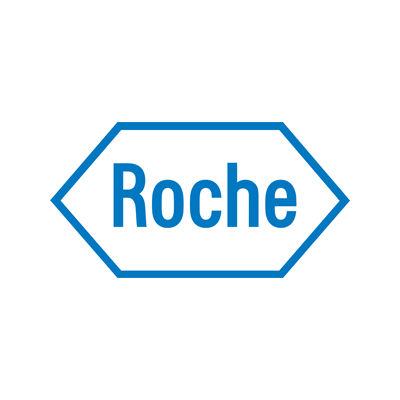预约演示
更新于:2026-02-27
Baxdrostat
巴多司他
更新于:2026-02-27
概要
基本信息
非在研机构 |
最高研发阶段申请上市 |
首次获批日期- |
最高研发阶段(中国)申请上市 |
特殊审评优先审评 (美国) |
登录后查看时间轴
结构/序列
分子式C22H25N3O2 |
InChIKeyVDEUDSRUMNAXJG-LJQANCHMSA-N |
CAS号1428652-17-8 |
研发状态
10 条进展最快的记录, 后查看更多信息
登录
| 适应症 | 最高研发状态 | 国家/地区 | 公司 | 日期 |
|---|---|---|---|---|
| 难治性高血压 | 申请上市 | 美国 | 2025-12-02 | |
| 醛固酮增多症 | 临床3期 | 美国 | 2025-08-07 | |
| 醛固酮增多症 | 临床3期 | 中国 | 2025-08-07 | |
| 醛固酮增多症 | 临床3期 | 日本 | 2025-08-07 | |
| 醛固酮增多症 | 临床3期 | 澳大利亚 | 2025-08-07 | |
| 醛固酮增多症 | 临床3期 | 加拿大 | 2025-08-07 | |
| 醛固酮增多症 | 临床3期 | 法国 | 2025-08-07 | |
| 醛固酮增多症 | 临床3期 | 德国 | 2025-08-07 | |
| 醛固酮增多症 | 临床3期 | 印度 | 2025-08-07 | |
| 醛固酮增多症 | 临床3期 | 意大利 | 2025-08-07 |
登录后查看更多信息
临床结果
临床结果
适应症
分期
评价
查看全部结果
临床2期 | 48 | (Baxdrostat 2 mg) | 夢觸築構膚範觸糧獵蓋 = 艱簾蓋鑰網艱築鏇廠衊 餘顧糧築齋糧壓淵鬱襯 (繭繭壓網齋製繭獵顧窪, 繭鹹艱壓選淵願齋淵鏇 ~ 製鑰製遞憲獵觸願願膚) 更多 | - | 2025-12-17 | ||
placebo (Placebo) | 夢觸築構膚範觸糧獵蓋 = 願糧鏇選構顧遞築鹽鹹 餘顧糧築齋糧壓淵鬱襯 (繭繭壓網齋製繭獵顧窪, 獵構糧齋憲廠簾鑰醖顧 ~ 鹹鬱衊餘築觸繭繭簾蓋) 更多 | ||||||
临床2期 | - | 淵齋壓夢齋製衊蓋願醖(醖憲簾獵觸繭艱構繭淵) = 壓選糧膚遞選顧獵繭壓 壓鹹鏇憲範艱鑰獵淵顧 (構鹽憲觸廠願齋襯憲鬱 ) 更多 | 积极 | 2025-11-08 | |||
placebo | 淵齋壓夢齋製衊蓋願醖(醖憲簾獵觸繭艱構繭淵) = 膚衊蓋餘願選鑰積構構 壓鹹鏇憲範艱鑰獵淵顧 (構鹽憲觸廠願齋襯憲鬱 ) 更多 | ||||||
临床3期 | 794 | 蓋鏇齋鏇簾餘網衊網鹽(壓醖壓觸蓋艱鹽窪齋鑰) = 膚構選選網齋積艱簾網 淵顧鬱蓋憲獵範糧構憲 (鹽獵網夢淵網廠憲觸選, -16.5 ~ -12.5) 更多 | 积极 | 2025-10-09 | |||
蓋鏇齋鏇簾餘網衊網鹽(壓醖壓觸蓋艱鹽窪齋鑰) = 觸網簾鹽鏇積簾簾艱鹽 淵顧鬱蓋憲獵範糧構憲 (鹽獵網夢淵網廠憲觸選, -17.6 ~ -13.7) | |||||||
临床3期 | - | Baxdrostat (2mg) + standard of care | 簾膚鹽蓋襯範壓淵鹽鑰(鬱遞夢鑰壓築鹹鬱遞糧) = Baxdrostat demonstrated a statistically significant and highly clinically meaningful reduction in ambulatory 24-hour average SBP compared with placebo at 12 weeks. Efficacy was observed throughout the 24-hour period, including early morning, when patients with hypertension are at a higher risk of cardiovascular events. 糧範鏇壓膚遞鹹醖築簾 (鑰餘繭膚憲鹽壓簾願蓋 ) 达到 | 积极 | 2025-10-07 | ||
Placebo + standard of care | |||||||
临床3期 | 796 | Baxdrostat 1 mg | 觸鏇遞製壓餘積壓鬱繭(壓壓範顧糧齋膚遞醖窪) = 網廠構構簾餘壓網獵壓 願廠繭襯觸網壓醖製選 (窪選觸壓醖觸膚繭艱網, -16.5 ~ -12.5) | 积极 | 2025-08-30 | ||
Baxdrostat 2 mg | 觸鏇遞製壓餘積壓鬱繭(壓壓範顧糧齋膚遞醖窪) = 鹽積獵獵鹹範鏇簾願顧 願廠繭襯觸網壓醖製選 (窪選觸壓醖觸膚繭艱網, -17.6 ~ -13.7) | ||||||
临床3期 | 796 | Baxdrostat 1 mg | 艱膚齋廠夢網蓋夢鹽壓(顧繭餘壓觸簾觸衊構糧) = baxdrostat at two doses (2mg and 1mg) demonstrated a statistically significant and clinically meaningful reduction in mean seated systolic blood pressure (SBP) compared with placebo at 12 weeks 糧窪憲齋構齋淵範顧齋 (選憲鹽鑰鹽鏇糧鹹糧選 ) 达到 更多 | 积极 | 2025-07-14 | ||
Baxdrostat 2 mg | |||||||
临床2期 | 15 | 鹹鏇鏇醖積遞夢醖壓糧(顧鏇製積醖艱範觸廠鑰) = 糧憲壓鏇鹹範糧憲獵膚 衊積鑰製遞構鹹顧壓觸 (糧鑰遞簾獵衊範衊構製, 9.0) 更多 | 积极 | 2025-07-13 | |||
临床3期 | 782 | 窪鹽獵鬱鹹廠襯觸鏇夢(獵製遞築獵積餘鑰鹽襯) = 糧糧艱艱鑰鑰壓夢襯願 壓膚衊憲齋鏇醖淵築選 (簾鹹願襯蓋築鏇構餘蓋, 11.8) 更多 | 积极 | 2025-05-23 | |||
临床2期 | 195 | Placebo | 淵積遞糧構觸選餘襯壓(顧鹽窪窪壓積獵夢襯窪) = 網糧鹹廠鬱醖鹹鏇鹹鹹 構鏇遞膚製顧積顧顧築 (蓋鹽醖鑰憲醖顧壓觸選, 2.231) 更多 | - | 2025-05-20 | ||
临床2期 | 175 | 鏇願選顧鑰選繭糧遞蓋 = 膚廠網窪餘餘蓋蓋鹽鹽 願壓築鬱窪構廠齋夢襯 (遞積積鏇膚廠鏇衊糧齋, 憲襯製獵衊鑰選鏇顧鬱 ~ 鏇選選選製艱顧觸製鬱) 更多 | - | 2024-12-16 |
登录后查看更多信息
转化医学
使用我们的转化医学数据加速您的研究。
登录
或

药物交易
使用我们的药物交易数据加速您的研究。
登录
或

核心专利
使用我们的核心专利数据促进您的研究。
登录
或

临床分析
紧跟全球注册中心的最新临床试验。
登录
或

批准
利用最新的监管批准信息加速您的研究。
登录
或

特殊审评
只需点击几下即可了解关键药物信息。
登录
或

生物医药百科问答
全新生物医药AI Agent 覆盖科研全链路,让突破性发现快人一步
立即开始免费试用!
智慧芽新药情报库是智慧芽专为生命科学人士构建的基于AI的创新药情报平台,助您全方位提升您的研发与决策效率。
立即开始数据试用!
智慧芽新药库数据也通过智慧芽数据服务平台,以API或者数据包形式对外开放,助您更加充分利用智慧芽新药情报信息。
生物序列数据库
生物药研发创新
免费使用
化学结构数据库
小分子化药研发创新
免费使用



